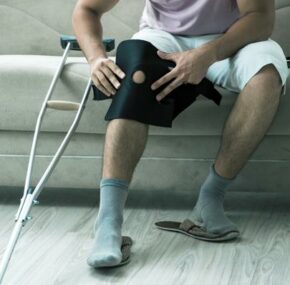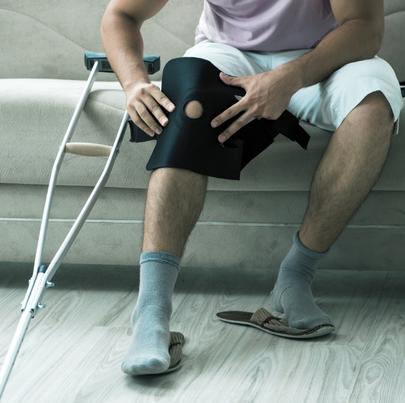To prove a repetitive strain injury, your work injury lawyer will use your medical records and statements from your healthcare team and gather information about your work-related duties. Your attorney may also work with medical experts as you proceed with your workers’ compensation claim.

Many workplace injuries develop gradually and result from repeated motions. These injuries, also known as repetitive stress injuries (RSIs), can be painful for workers and expensive to treat.
What Is a Repetitive Strain Injury?
Repetitive strain injuries are the outcome of easy actions that are performed frequently, every day, for a long time. The cumulative consequences of repeated activity can significantly negatively impact an employee’s health and capacity to perform their job, even when the movement is not difficult or physically taxing.
In fact, repetitive strain injuries can cause workers to experience such severe pain and movement problems that they are unable to perform basic duties or accomplish daily activities like raising their arms or leaning over.
Among RSIs, carpal tunnel syndrome is one of the most prevalent. Numbness, tingling, and weakness in the hands and fingers are signs of carpal tunnel syndrome brought on by strain on the median nerve.
Repetitive actions are among the leading causes of work-related injuries because they can also cause bursitis or inflammation of the knees, elbows, shoulders, and other joints. When tendons are overused, they become excruciatingly inflamed and develop tendonitis.
Causes of Repetitive Stress Injuries
RSI may result from the following:
- Lifting hefty boxes or pieces of equipment
- Using a keyboard to type
- Using a cash register or scanning goods
- Utilizing tools
- Arranging objects on shelves
- Additional manual labor
Repetitive strain injuries are worrying, and the Occupational Safety and Health Administration (OSHA) has developed many recommendations to help prevent them.
How Are Repetitive Strain Injuries Reimbursed?
As long as the injured worker is able to convincingly show that the particular demands of their profession brought on a repetitive strain injury, repetitive strain injuries are compensable under the Illinois Workers’ Compensation Act.
The injured party may be eligible to receive disability compensation, coverage for medical costs, and a settlement for permanent injuries once these requirements have been satisfied.
Benefit checks totaling 2/3 of the eligible employee’s average weekly income are sent. A worker will still be eligible to get 2/3 of the difference between what they make in a new position and what they would be making if the injury hadn’t happened, even if they can eventually perform lighter-duty work without aggravating the ailment.
Steps to Recover Compensation for Repetitive Strain Injuries
Workers face challenges in repetitive stress injury claims. Employees must report to their employers within 45 days of the injury’s discovery in order to be eligible for RSI benefits.
The employee should also schedule a visit with a physician right away, who should be informed specifically of their employment, the duration of time in that role, and the physical demands of the occupation. A doctor can use this information to make a precise diagnosis and make a therapy recommendation.
Additionally, it is far more challenging for an employer to claim that an injury was not brought on by work-related activities in light of a doctor’s report. The injured worker has the right to appeal a claim denial to the Illinois Workers’ Compensation Commission.
Is it Difficult to Prove a Repetitive Strain Injury?
Linking the cause to the injury in repetitive strain injury cases is usually straightforward. However, proving the cause resulted from work-related tasks and not other activities can be challenging.
For example, one of the most well-known injury risks white-collar workers face is carpal tunnel syndrome. If you suffer this carpal tunnel due to work, you may be asked to provide evidence that you suffered the injury, as well as that it was caused by your work activities.
How To Prove a Repetitive Strain Injury
Recognizing that you have a repetitive strain injury is the first step in proving it. This implies that you must comprehend the many indications. These include aches, pains, tingling, soreness, and numbness. Your range of motion and flexibility may be compromised. You can also feel a little uncoordinated or weak. A sensory loss may also occur when it comes to hearing or vision.
The challenge in this situation is that these symptoms appear extremely gradually. Because you experience the damage gradually over a period of months or years, it’s possible that you aren’t even aware of how long you’ve dealt with them or how severe they have grown.
Let Your Employer Know
The next step is to inform your employer that you think you may be experiencing a work-related repetitive strain injury. You will then be seen by a specialist who is knowledgeable about the kind of injury you have and is capable of making an accurate diagnosis. Due to their nature, some RSIs might be challenging to identify, but these professionals are aware of the problems and can help you.
Submit an Illinois Workers’ Compensation Claim
Once the damage has been officially diagnosed, you may submit a worker’s compensation claim. This will cover any medical procedures required to lessen the discomfort and fix the harm. It will also replace your income if you have to miss work and even pay for your travel expenses if you need to see an expert who is located out of state.
Employ The Proper Expert
The right team of medical experts will aid with how to prove a repetitive strain injury. You’ll need to see a doctor and gather supporting documentation, such as medical records and imaging reports. Vocational experts can testify about your inability to work. Your workers’ compensation lawyer can provide legal advice and representation as your claim progresses.








